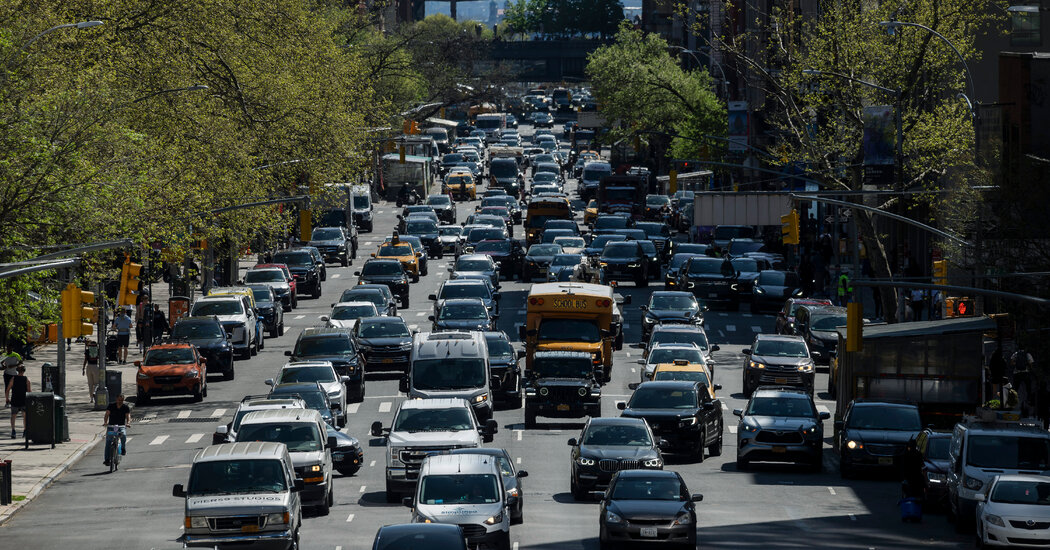With weeks to go before the launch of a plan to toll drivers in Manhattan’s core commercial district, advocates and organizers of congestion pricing had been celebrating a victory years in the making.
They were shellshocked on Wednesday and furious with Gov. Kathy Hochul after she indefinitely suspended the plan, saying she didn’t think the time was right for a tolling scheme that could deter visitors to Manhattan and slow the city’s economic recovery from the pandemic.
Those who had fought for congestion pricing had been eagerly awaiting the implementation of an idea conceived here 72 years ago — one that aimed to transform the city’s busiest streets and set an example for other American cities that are battling traffic and pollution.
But they woke up to devastating news on Wednesday, when it was revealed that Ms. Hochul had been quietly working to postpone the program. Advocates said they were crestfallen.
“We’ve been blindsided,” said Kate Slevin, executive vice president of the Regional Plan Association, an urban planning nonprofit in New York. “It’s a betrayal of millions of transit riders and the future of New York’s climate and economy.”
Upon hearing about a possible delay, the Riders Alliance, a grass-roots organization of transit riders, assembled a protest in front of Ms. Hochul’s New York offices. Their anger grew following her announcement.
“Congestion pricing must move forward,” Danny Pearlstein, a spokesman for the Riders Alliance, shouted outside Ms. Hochul’s New York City offices as he led a crowd of demonstrators, according to a video posted on social media. “Congestion pricing is the linchpin of New York’s recovery. This city runs on our subway. It runs on the millions of buses we have on the street.”
Officials with the Metropolitan Transportation Authority, which would have overseen the program and collected the $1 billion that it was expected to raise annually, did not immediately respond to a request for comment. But the development was a crushing setback to the authority, which had been defending itself from at least eight lawsuits fighting the program.
Congestion pricing had been sold as a way to rein in traffic and pollution while improving travel speeds in some of the world’s most traffic-clogged streets. The money raised from drivers would have been used by the M.T.A. to secure $15 billion in bond financing to help pay for much needed improvements to New York City’s transit network, which is the largest and busiest in North America.
Under the congestion pricing plan, which would have been the first of its kind in the United States, most motorists would have paid $15 to drive into some of the city’s most famous destinations and neighborhoods, including the theater district, Times Square, Hell’s Kitchen, Chelsea and SoHo.
Other major cities around the world, including Stockholm, London and Singapore, have charged tolls to enter central business districts for years. New York City would have been the first in the nation to deploy such a program.
“I was always holding my breath until the first car would go through, which I hoped would be mine,” said Samuel I. Schwartz, a former city traffic commissioner and longtime supporter of congestion pricing. Mr. Schwartz noted that motor vehicles contribute heavily to greenhouse gasses, and he lamented the construction jobs that will be lost because the M.T.A. will not carry out infrastructure upgrades using congestion pricing money.
He said the suspension of the program would be an economic blow to New York.
“That bottle of champagne, the cork remains in it,” Mr. Schwartz said. “It’s been there for close to 50 years.”
